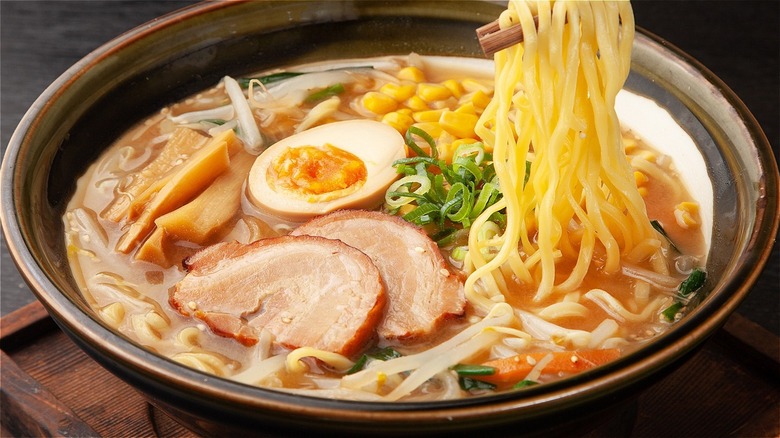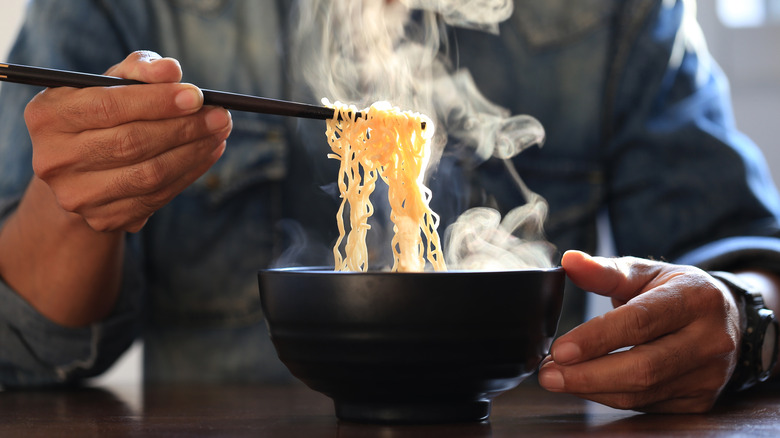The Reason We Slurp Ramen
The truth is, you aren't doing yourself any favors by eating your ramen the polite way. Your reasoning may be that gently shoving the flavor-drenched noodles in your mouth will reduce splattering the broth everywhere and keep your noise levels down. That's all well and good, but you should know that slurping your ramen actually has a number of benefits. For one, it tells the person who expertly seasoned and cooked your noodles that you are satisfied with your meal. Ramen is an iconic cuisine staple in Japan, and while the Japanese generally adhere to high standards of politeness and meal etiquette, ramen is the big exception. It's most aromatic when served steaming hot, so slurping it down to savor its deliciousness at its peak becomes a time-sensitive mission to accomplish before it cools.
Slurping your ramen not only gives your ultimate compliments to the chef, it's a Japanese cultural custom that is known to scientifically improve the flavors and overall culinary experience. Though, how exactly does eating ramen loudly make it better?
Slurping ramen cools and aerates it for more flavor
Each region of Japan has its own appetizing varieties of ramen that are unique and special in their own way. Since ramen is one of the country's most popular dishes, Japan is the authority on how to use all your senses to enjoy a bowl of ramen, udon, or soba to its fullest. Horri Yoshinori, the owner of the beloved centuries-old Tokyo soba shop Sarashina Horii, explains, "The smell of soba is best appreciated via the mouth, not the nose. With wine tasting, for example, you first sniff, to smell the wine in the glass, then you swish it around in your mouth to capture the aroma that wafts up your nasal passages from your throat," (per Nippon). Who knew "inhaling" your meal could be so literal?
Effective ramen slurping not only cools the noodles down as you eat them says Tokyo Treat, but it will also draw some of the broth into your mouth along with them, giving you the full olfactory experience as all the aromas and tastes meld together. Al dente noodles have a small window of perfection before they start to get soggy, so timing is everything. "They say you have eight minutes in the soup before the noodle starts to overcook," says connoisseur of ramen Brian MacDuckston (via Smithsonian Magazine). So next time you cook ramen at home or find a noodle shop to try, eat loudly. You can thank us later.

